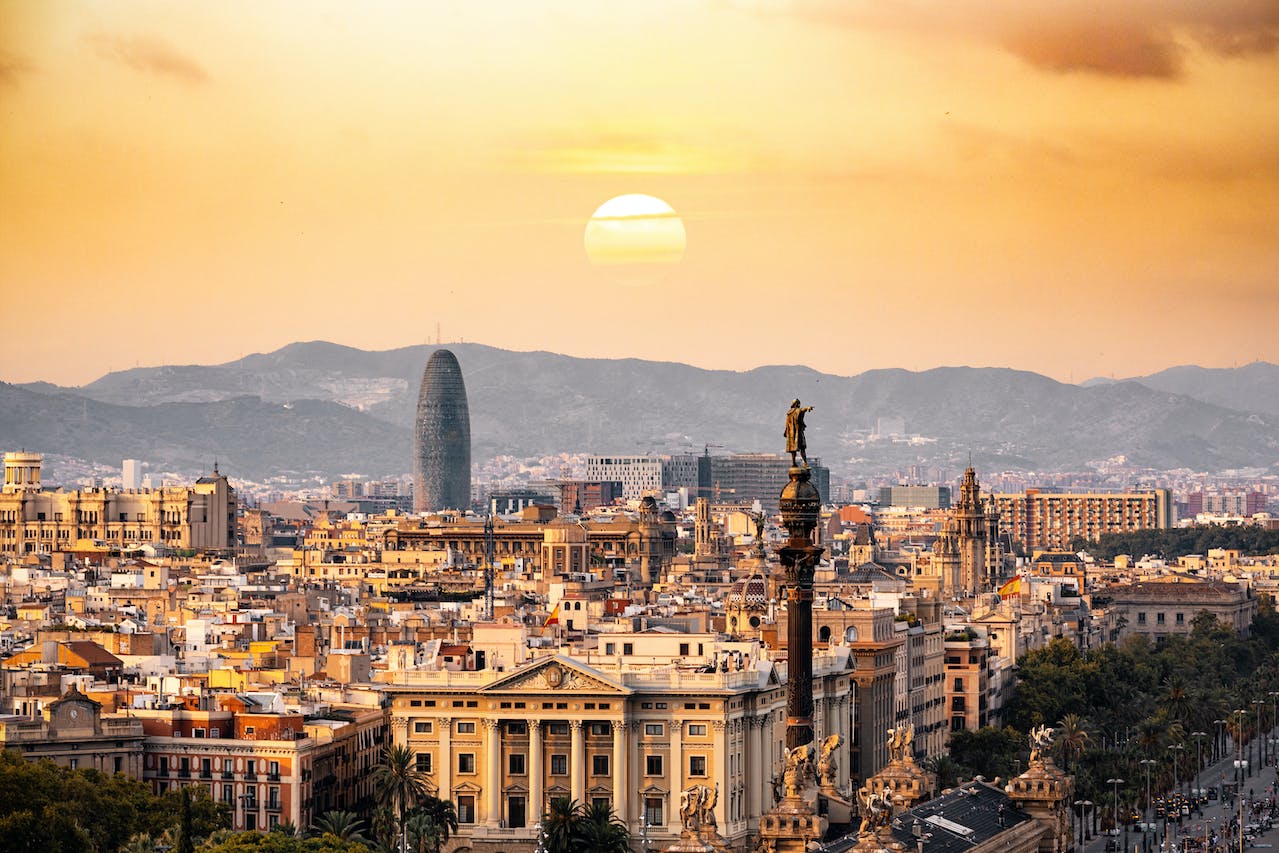Cannabis
Why Barcelona Authorities Plan to Close All Cannabis Clubs
Barcelona’s Deputy Mayor for Security, Albert Batlle, announced the city’s goal to “end” the activities of cannabis clubs, responding to a request from the Vox party. Batlle emphasized a thorough, and rigorous approach to shutting down the clubs, acknowledging the difficulty of completely eliminating them. Administrators of cannabis clubs note a shift in inspection focus compared to previous ones.

The Barcelona City Council, led by Jaume Collboni of the PSC (Party of Socialists of Catalonia), is stepping up action against cannabis clubs in Barcelona, seeking to close them down. The city hall is looking for legal ways to “terminate” the activities of these places, which in the last decade have become the main channel of access to cannabis for users in the city.
A few days before the end of the year, the city council launched a new campaign together with the city police (Guàrdia Urbana) to inspect cannabis clubs , which resulted in the entry into at least twenty such premises where cannabis is usually consumed.
This is not the first such campaign, but this time it is accompanied by political declarations indicating a change in the city council’s approach. After two terms in which these places were defended and indirectly allowed to exist, the new city team made it clear that tolerance for these spaces may be ending.
Read more about the end of cannabis clubs in Barcelona and find the most important financial news of the day with teh Hemp.im mobile app.
The end of cannabis clubs in Barcelona
During the last city council meeting on December 22, Albert Batlle, third deputy mayor and councilor for security, stated that his team’s goal was to “end” the activities of cannabis clubs in Barcelona. “It’s a model we don’t want in our city,” Batlle said. “You have to [shut it down] and do it right,” he continued. “With legal certainty, rigorously and without haste.”
Batlle thus responded to the Vox party’s request to close “all cannabis clubs and shops” in the city. The ultra-right party reminded the councilor of his words from early December, when, during a meeting with the residents of the Gothic district, he stated that if it were up to him, he would “close them all.” “They shouldn’t be part of Barcelona’s life,” Batlle said. “Like other activities we are gradually adapting.”
The councilor also assured at the same meeting that they were increasing inspections to check whether it would be possible to end the operation of these places, although he admitted that eliminating them completely would not be easy and would require changing the regulations.
Various administrators of cannabis clubs interviewed by elDiario.es journalists indicate that the current inspections also differ from the previous ones, which focused mainly on the technical aspects of the premises. This time, the purpose of the inspection is to determine whether the use of marijuana is still permitted or promoted inside these places. “The impression is that this time they intend to act more decisively,” say the same sources.
When asked by this newspaper, representatives of the city council did not want to comment on this matter and limited themselves to saying that they were “working to ensure the legality of these establishments.”
Court ruling against cannabis clubs
In 2021, the Supreme Court confirmed the judgment of the Court of Justice of Catalonia (TSJC), which overturned regulations adopted by the city council in 2016 – supported by a wide majority at the council meeting – regulating approximately 250 such places in the city. These regulations defined the requirements that these places should meet, such as distance from schools and other facilities, access conditions, ventilation, etc.
After the Supreme Court’s decision, the last legal umbrella for these places in Barcelona no longer existed. The city council then sent a letter to these clubs, reminding them that after the verdict they can only ” provide information, develop or disseminate research and formulate proposals, express opinions on marijuana in any way and promote meetings or seminars ” on the subject.
Most of these associations open to cannabis consumers, however, remained open without a specific license to protect them. The latest inspections are aimed at proving that cannabis clubs are still offering access to marijuana, said sources consulted.
This situation has caused confusion among activists who have been defending the cannabis club model for years as a solution that moves marijuana consumption away from the streets and helps reduce the risks associated with its use. “For the city council, we are all the same,” complains the president of one of these associations. “ They lumped activists who act properly with traffickers who recruit tourists to Las Ramblas .”
The Parliament itself, with all votes in favor except the PP, adopted regulations regarding these places in June 2017, which were later overturned by the Constitutional Tribunal. The Generalitat’s Department of Health has also funded harm reduction campaigns in cannabis clubs in recent years.
A model inspiring other countries
The offensive against social cannabis clubs in Barcelona comes at a time when many countries are involved in the regulatory processes of this substance and are observing this model, initiated in an organized way 20 years ago, as a reference point for access to marijuana.
Germany will launch such clubs from April 2024, Switzerland has a pilot marijuana sales program from March 2023, and other countries such as Malta and the Czech Republic are considering introducing similar models. At the beginning of December, a group of experts from Barcelona hosted the President of Malta so that he could learn about the functioning and activities of these places.
In March, cannabis clubs in Barcelona were also visited by an international delegation composed of parliamentarians from various European countries, including those responsible for administration from various US states and South American countries
__
(Featured image by Aleksandar Pasaric via Pexels)
DISCLAIMER: This article was written by a third party contributor and does not reflect the opinion of Born2Invest, its management, staff or its associates. Please review our disclaimer for more information.
This article may include forward-looking statements. These forward-looking statements generally are identified by the words “believe,” “project,” “estimate,” “become,” “plan,” “will,” and similar expressions. These forward-looking statements involve known and unknown risks as well as uncertainties, including those discussed in the following cautionary statements and elsewhere in this article and on this site. Although the Company may believe that its expectations are based on reasonable assumptions, the actual results that the Company may achieve may differ materially from any forward-looking statements, which reflect the opinions of the management of the Company only as of the date hereof. Additionally, please make sure to read these important disclosures.
First published in FaktyKonopne. A third-party contributor translated and adapted the article from the original. In case of discrepancy, the original will prevail.
Although we made reasonable efforts to provide accurate translations, some parts may be incorrect. Born2Invest assumes no responsibility for errors, omissions or ambiguities in the translations provided on this website. Any person or entity relying on translated content does so at their own risk. Born2Invest is not responsible for losses caused by such reliance on the accuracy or reliability of translated information. If you wish to report an error or inaccuracy in the translation, we encourage you to contact us.

-

 Biotech2 weeks ago
Biotech2 weeks agoEurope’s Biopharma at a Crossroads: Urgent Reforms Needed to Restore Global Competitiveness
-

 Africa7 days ago
Africa7 days agoFrance and Morocco Sign Agreements to Boost Business Mobility and Investment
-

 Impact Investing2 weeks ago
Impact Investing2 weeks agoItaly’s Listed Companies Reach Strong ESG Compliance, Led by Banks and Utilities
-

 Fintech4 days ago
Fintech4 days agoFindependent: Growing a FinTech Through Simplicity, Frugality, and Steady Steps

























